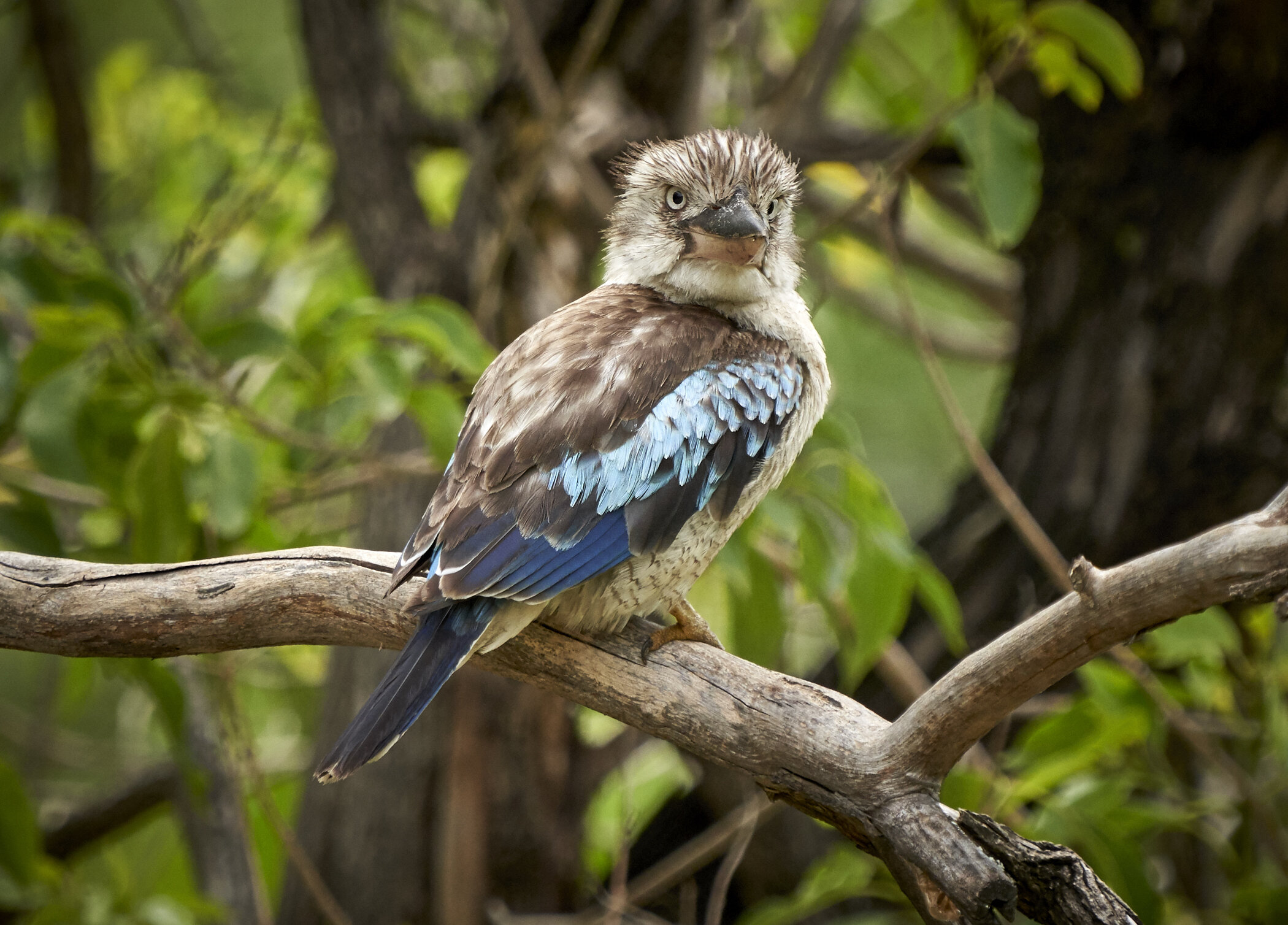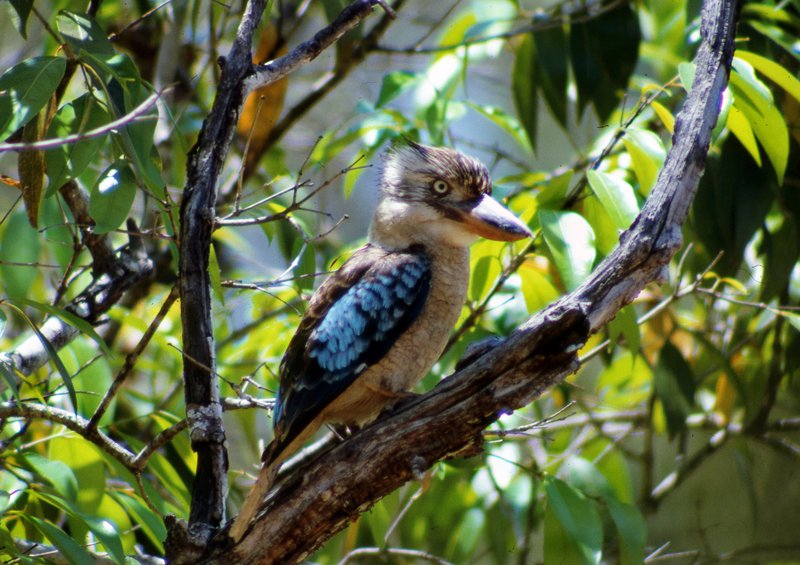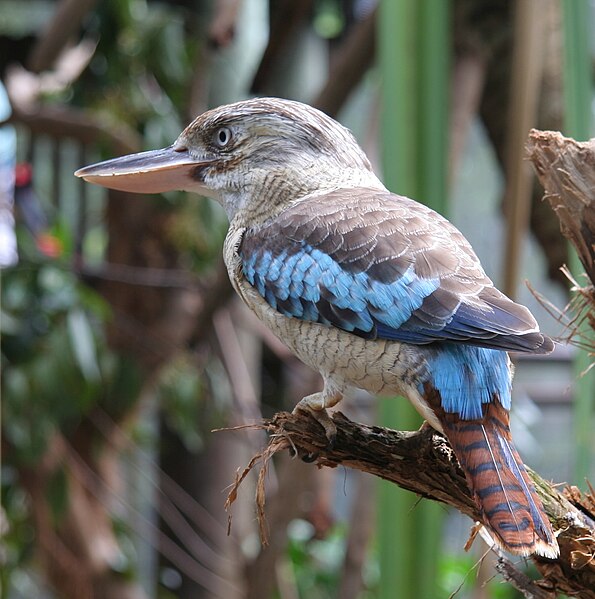The Blue-winged Kookaburra (Dacelo leachii) is a striking bird native to northern Australia and southern New Guinea, known for its distinctive call and vibrant plumage. Unlike its more famous cousin, the Laughing Kookaburra, the Blue-winged Kookaburra is easily identified by the vivid blue feathers on its wings and tail, which stand out against its predominantly brown and white body. Its large head, strong beak, and piercing eyes give it a formidable appearance, yet it’s the bird’s call—a series of loud, cackling sounds—that truly captures attention.

These birds inhabit a variety of landscapes, including forests, savannas, and mangroves, where they are often seen perched high in the trees, surveying their surroundings. Blue-winged Kookaburras are skilled hunters, feeding on a diverse diet that includes insects, small mammals, reptiles, and even other birds. They are known for their patience and precision, waiting motionless before swooping down to catch their prey with their powerful beaks.



Despite their somewhat menacing appearance and hunting prowess, Blue-winged Kookaburras are social birds, often found in small family groups. They are also monogamous, forming strong pair bonds that last for life. During the breeding season, both parents participate in raising their young, and it’s not uncommon for older offspring to help with the care of their younger siblings.




The Blue-winged Kookaburra’s distinctive features and behavior make it a fascinating subject for birdwatchers and nature enthusiasts. Its powerful presence and unique vocalizations contribute to the rich tapestry of the ecosystems it inhabits, embodying the wild and untamed spirit of the Australian wilderness.